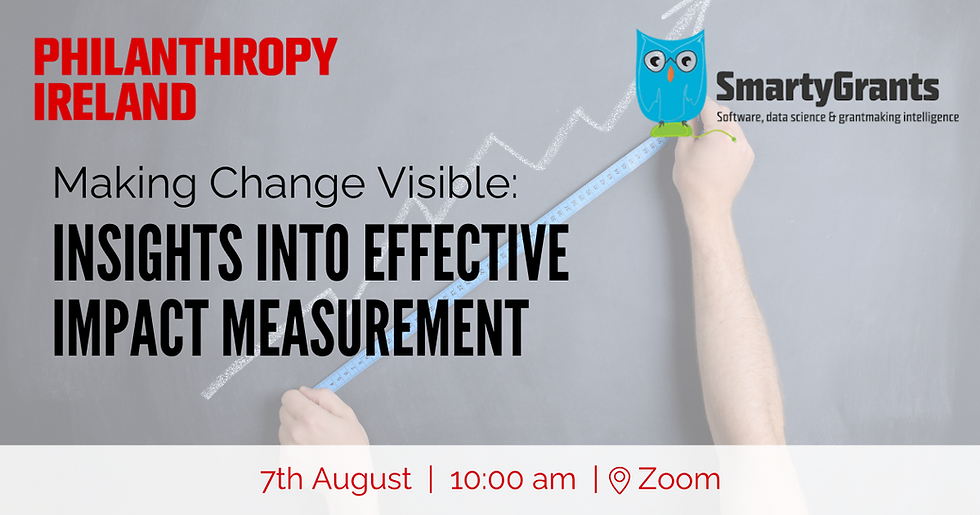Next Frontiers: Unlocking Resources in This Time of Crises and Possibilities
- Jul 13, 2023
- 3 min read
Updated: Jul 14, 2025
By: Hazel Hennessy, Philanthropy Ireland

The Philanthropy Ireland team got the opportunity on Tuesday 11th July to attend some of the virtual sessions offered by the New Frontiers Conference. The conference, hosted by Joseph Roundtree Foundation brought together over 50 speakers and 1000 attendees.
There were a few key takeaways and concepts for philanthropists and philanthropic institutions to think about as they look to the future of social change and philanthropy’s place in the complex web of social justice.
Several speakers stressed the importance of recognising that many community partners are working in a polycrisis environment, alongside dealing with often radical systems change. It was noted how easy it is for foundations to become comfortable with their privileged position as funders and it is up to the leaders in these organisations to adjust decision-making powers for a more equitable approach to social change.
In a similar vein community leaders spoke out throughout the conference about funders demands and how they are becoming increasingly more complex and insistent on organisations to be everything to everyone.
There is a need for deep listening across the sector and a co-creation approach to solving complex issues. Reflecting on similarities here, Philanthropy Ireland has seen a similar desire from our own membership to explore concepts such as ‘Trust Based’ and ‘Participatory’ grant making to disrupt power imbalances that exist in traditional grant making.
Another common theme throughout the conference was ‘risk’, whether that be risk to look at different financial vehicles or examining why some foundation boards are risk adverse.
We are at a pivotal moment in society where imbalance of power in our communities is being challenged and in many cases is being dismantled and redefined. Philanthropy is urged to use its power to support communities as they seek true equity and fairness.
Foundation leadership is being urged to look at their own internal composition and listen to their grant makers and staff on the ground to understand how they should steward their funds. It is important that foundations are flexible in their use of endowments and focus on how they can use their funds innovatively.
The conference highlighted many examples of how philanthropy is working collaboratively with community and change making organisations to create a more equal place to live for us all and it was an opportunity for the philanthropic community to continue to challenge itself in order to create even better and more sustained impact.
We are at the early stages in the development of philanthropy in Ireland. Such insights add real value as we look to vision on what the future landscape and practice of philanthropy could look like in the Irish context.
Interesting resources:
International Grantmaking: Trusting Relationships are Critical to Success – YouTube
Private Equity: A force for good? | Podcast | PRI (unpri.org)
Confronting Injustice: Racism and the Environmental Emergency (runnymedetrust.org)
The real reason we want to raise taxes on the rich – Patriotic Millionaires





Comments